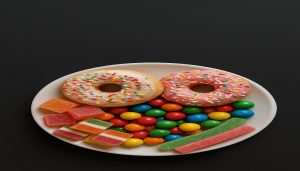Chronic Kidney Disease Patients: Protect Your Kidneys and Thrive
Why Diet Is Your Secret Weapon Against CKD
Chronic Kidney Disease (CKD) happens when your kidneys stop working as well as they should. They can’t filter waste and fluids the way they used to. According to the CDC, 9 in 10 adults with CKD don’t know they have it. That makes early diet changes even more important. Tony, a 71 year old recently diagnosed CKD patient was terrified about the state of his kidneys, but after the careful guidance from our nephrology team on the right diet, he calmed down after realizing his kidneys are functioning optimally again and his energy levels had increased.
Many sources list what not to eat. But they often skip why it matters—or how to make those changes last. In this post, I’ll share expert advice and real-life tips I’ve used with CKD patients in my care.
What Exactly Is CKD?
Your kidneys filter your blood and help control blood pressure, fluids, and minerals. CKD means your kidneys are slowly losing that ability. Waste and fluid build up in your body. Over time, this can lead to high blood pressure, weak bones, heart disease, and more.
Diet is one of the most powerful ways to help your kidneys. It can slow the disease and make you feel better.
How Food Helps or Hurts CKD
Too much sodium, potassium, phosphorus, or protein can stress your kidneys. But eating the right amount can ease the load. Good nutrition won’t cure CKD, but it can protect the function you still have.
Many blogs just say “eat less salt.” I’ll explain how and why these nutrients matter—so you can take real action.
Key Nutrients to Watch
Phosphorus: Protect Your Bones
When kidneys fail, phosphorus builds up in your blood. This pulls calcium from your bones, making them weak. It can also damage blood vessels (KDIGO, 2017).
Avoid: Processed foods like deli meats, dark sodas, and boxed snacks.
Tip: Read labels for ingredients with “phos-” in them.
Try instead: Sparkling water with lemon, fresh meals without additives.
Potassium: Keep Your Heart Safe
Potassium helps your heart and muscles work. In CKD, too much potassium can cause heart rhythm problems (National Kidney Foundation).
Avoid: Bananas, oranges, potatoes, and tomatoes.
Tip: “Leach” veggies—cut, soak in water, then cook. This can cut potassium by half.
Try instead: Apples, grapes, and cucumbers.
Sodium: Control Blood Pressure and Swelling
Too much sodium causes fluid build-up. This raises your blood pressure and can cause swelling.
Avoid: Canned soup, fast food, frozen meals. A single burger may have 1,000 mg of sodium.
Tip: Use herbs and spices like garlic, cumin, and lemon juice.
Watch for: Hidden sodium in breads, sauces, and cereals.
Protein: Find the Right Balance
Protein is important for muscle and repair. But too much creates waste your kidneys can’t handle. Not enough, and you risk poor nutrition.
General guideline:
- Early CKD: 0.6–0.8g protein/kg body weight/day (about 54g for a 150-lb person).
- Dialysis: More protein needed (1.0–1.2g/kg/day).
Sources: Eggs, lean meats, tofu, and lentils (adjust for potassium/phosphorus).
Work with: A kidney dietitian to find your best amount.
Personalizing Your CKD Diet Plan
Every CKD patient is different. Your plan depends on your test results, stage of disease, other health issues, and what you enjoy eating.
Work With Experts
A registered dietitian or nephrologist should guide your plan. They’ll check labs like eGFR and creatinine and help you adjust your meals.
One of my patients thought “less salt” meant skipping chips. Her dietitian helped her understand the sodium hiding in her daily bread—and how to swap it.
Sample Meal Ideas by CKD Stage
Check with your care team before making changes.
Stages 1–2: Prevent More Damage
- Breakfast: Greek yogurt with blueberries
- Lunch: Turkey wrap with lettuce and mustard
- Dinner: Grilled salmon with wild rice and asparagus
Stages 3–4: Stay Precise
- Breakfast: Oatmeal with applesauce
- Lunch: Quinoa salad with chicken and veggies
- Dinner: Tofu stir-fry with zucchini and rice
Stage 5 (Dialysis): Higher Protein, Less Fluid
- Breakfast: Egg whites with spinach on toast
- Lunch: Tuna salad (low-sodium) with rice cake
- Dinner: Beef stir-fry with carrots and noodles
Meal Prep Tips for CKD
- Plan ahead: Write a weekly menu.
- Shop smart: Choose fresh produce, herbs, and low-sodium items.
- Cook at home: It gives you full control over salt and additives.
Eating out? Ask for low-salt meals. Bring your own dressing if needed.
Kidney-Friendly Recipes to Try
Lemon Herb Chicken
- Ingredients: 4 oz chicken breast, olive oil, lemon juice, rosemary, thyme
- Directions: Marinate 30 mins. Bake at 375°F for 25 mins.
- Why it’s good: Low sodium, high flavor, safe protein
Cucumber Dill Salad
- Ingredients: 1 cucumber, vinegar, dill, black pepper
- Directions: Slice cucumber, mix, and chill 15 mins.
- Why it’s good: Light, low potassium, refreshing
Helpful CKD Resources
- National Kidney Foundation – Recipes, facts, and support
- American Kidney Fund – Diet tips and tools
- Kidney Community Kitchen – Recipes from around the world
Beyond Diet: A Full CKD Lifestyle
Stay Active
Walking, yoga, or light weights can improve heart health and energy. Aim for 30 minutes a day. Even short walks help.
Manage Stress
CKD is tough. Breathing exercises or apps like Calm or Headspace can lower stress. Don’t be afraid to talk to a friend, therapist, or support group.
Drink Fluids Wisely
Early-stage CKD may allow 64 oz a day. Dialysis patients often need to limit fluids to 32 oz. Ask your doctor what’s right for you.
You’re Not Alone
CKD affects your body—and your emotions. Many patients feel fear, anger, or isolation. That’s normal. Community helps.
When my aunt was diagnosed, she joined a local support group. Sharing meals and wins with others helped her feel in control again. You can do the same.
Your Next Step Starts Now
A kidney-smart diet can change your future. The right foods, good support, and small steps lead to big wins. I’ve seen patients regain energy, avoid dialysis, and feel better every day.
Start today:
- Try a new recipe
- Call a kidney dietitian
- Join a CKD support group
What’s your first step? Let me know in the comments—I’m cheering you on.
Disclaimer: This post is only for educational purposes only, always consult your medical team before making dietary changes.




